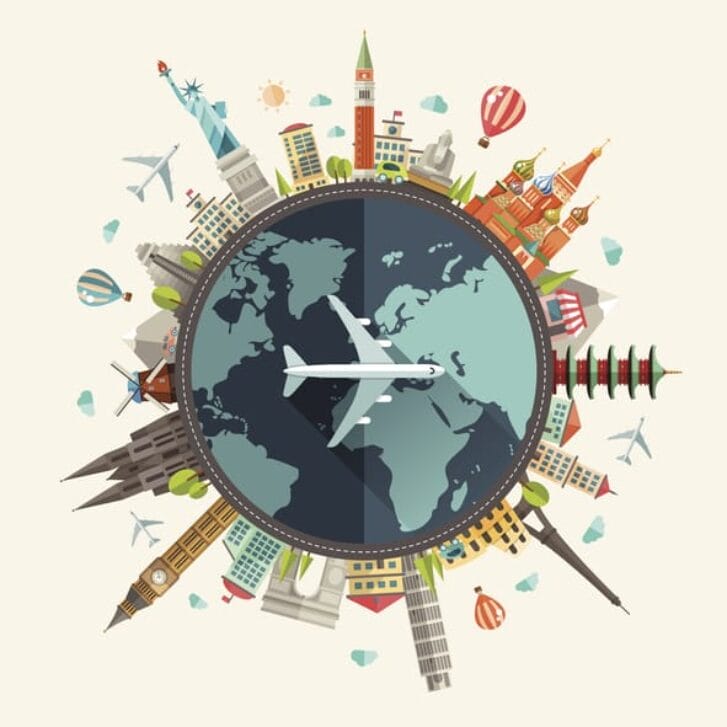Edmond Chan WG25 had always dreamed of earning a Wharton MBA. But with a young family in Hong Kong and work that required frequent travel, he found the commute to Philadelphia or San Francisco for the School’s traditional Executive MBA program simply not feasible. That all changed in 2023 with the launch of the program’s Global cohort. That cohort, which will graduate its first class of students in May, combines online and in-person learning, making the prestigious Wharton MBA more accessible for professionals worldwide.
Before Chan became part of the cohort, though, he had one final hurdle to consider: He was transitioning from a role at financial technology firm ZA to the helm of ZeroPlus Group, a company in the accessories and toy space with locations across Asia. Could he manage the responsibilities of growing a company, raising two children, and traveling around Asia, all while pursuing an MBA? Chan decided the challenge was worthwhile. “My background was in business development and entrepreneurship, but to successfully scale my business, I needed the advanced financial skills a Wharton MBA could provide,” he says. “I was eager to apply what I’d learn directly to my new role and scale the company regionally or even globally. Given the new program format, I could manage my commitments much more effectively.”
Alfonso L. Corcuera WG25, a director at ACON Investments, found himself in a similar position. The long and unpredictable commute from Mexico City to Wharton kept the Executive MBA program out of reach for him. With the announcement of the Global cohort, though, Corcuera saw the opportunity to pursue his dream. “I had transitioned from investment banking to private equity and became heavily involved in the day-to-day operations of our portfolio companies,” he says. “I wanted a Wharton MBA to deepen my understanding of business and join a community of top private equity professionals. Wharton is the best business school in the world, and I wanted to be a part of it.”
Even though she is based in the U.S., Sona Sundaramurthy WG25 faced comparable commuting challenges. She lives in a small town in rural Indiana where the nearest airport is 60 miles away, so making it to Wharton would have been a logistical nightmare. But the Global cohort changed her calculus. “I was managing a team of 170 employees across the U.S., Colombia, Ireland, and Switzerland,” recalls the Zimmer Biomet senior director. “When Wharton announced the Global cohort, my COO said, ‘High potential goes to Wharton. You should go to Wharton.’ The hybrid format and focus on global business were a perfect fit for my career.”
Flexible Formula
When Wharton first introduced the cohort, some observers wondered whether the online component — which makes up about 75 percent of the program — could match the quality of in-person classes. The answer from administrators, faculty, and students has been a resounding yes. “The Global cohort students pursue the exact same degree, with the same curriculum and the same faculty most of the time,” says Mauro Guillén, vice dean of Wharton’s MBA Program for Executives. “It is meant to make the Wharton MBA accessible to students who cannot travel every other weekend.”
The idea for a global expansion of the program began with Peggy Bishop Lane, former vice dean of the Executive MBA program, and director Diane Sharp, whose early vision and strategic direction were crucial in designing a cohort that evinces the same rigor and depth of learning online and in person.
Sundaramurthy points to Scaling Operations — taught by Gad Allon, director of the Jerome Fisher Program in Management & Technology, Jeffrey A. Keswin Professor, and operations professor — as a course that ran concurrently in Philadelphia and online in the same term. “The curriculum, assignments, and exams were the same,” she says. “The medium doesn’t matter if you’re committed to learning.”
Although much of the cohort’s coursework is conducted online, about a quarter of class hours are held in person during block weeks in locations such as Panama City, San Francisco, and Seoul, South Korea. “We maximize our time together, whether it’s exploring Napa Valley before class in San Francisco, touring Seoul together, or taking a catamaran tour off the coast of Panama,” says Sundaramurthy. “We aren’t able to eat lunch or take breaks together when we’re online, but we still forge a strong community.”
Joining a Global Network
Although Executive MBA students start out in defined groups, the lines between the East, West, and Global cohorts blur by the second year, as students take electives online, on Wharton’s Philadelphia and San Francisco campuses, and around the world. “The most pleasantly surprising thing has been how quickly the Global cohort students have created a sense of community among themselves, and the extent to which they have come together with the other cohorts thanks to the activities, trips, and block weeks we’ve added to the program that all students, regardless of cohort, can attend,” says Guillén.
Corcuera, who traveled in year two to take classes on both campuses, says the connections he made were invaluable: “We may have three cohorts, but we are one Wharton class.”
For Chan, such connections have been equally impactful. “I’ve taken classes with students in locations like Vietnam, New York City, and South Korea,” he says. “During a Global Modular Course in Korea, I connected with an East Coast student who’s a physician specializing in dementia care. We’re now collaborating on a business idea for a toy designed to alleviate dementia symptoms. Wharton has truly expanded my network.”
Sundaramurthy also embraced the broader Executive MBA community with a term in Philadelphia and with Global Modular Courses in Thailand and Germany. “The reality is that all of the cohorts are global, as students have personal and professional experiences from around the world,” she says. “We want to get to know each other and build a community.”
As Corcuera nears graduation, he reflects on the journey: “It’s been transformative. Without Wharton’s vision, I wouldn’t have had the chance to join such an incredible global community.”
Published as “Education Without Borders” in the Spring/Summer 2025 issue of Wharton Magazine.


























